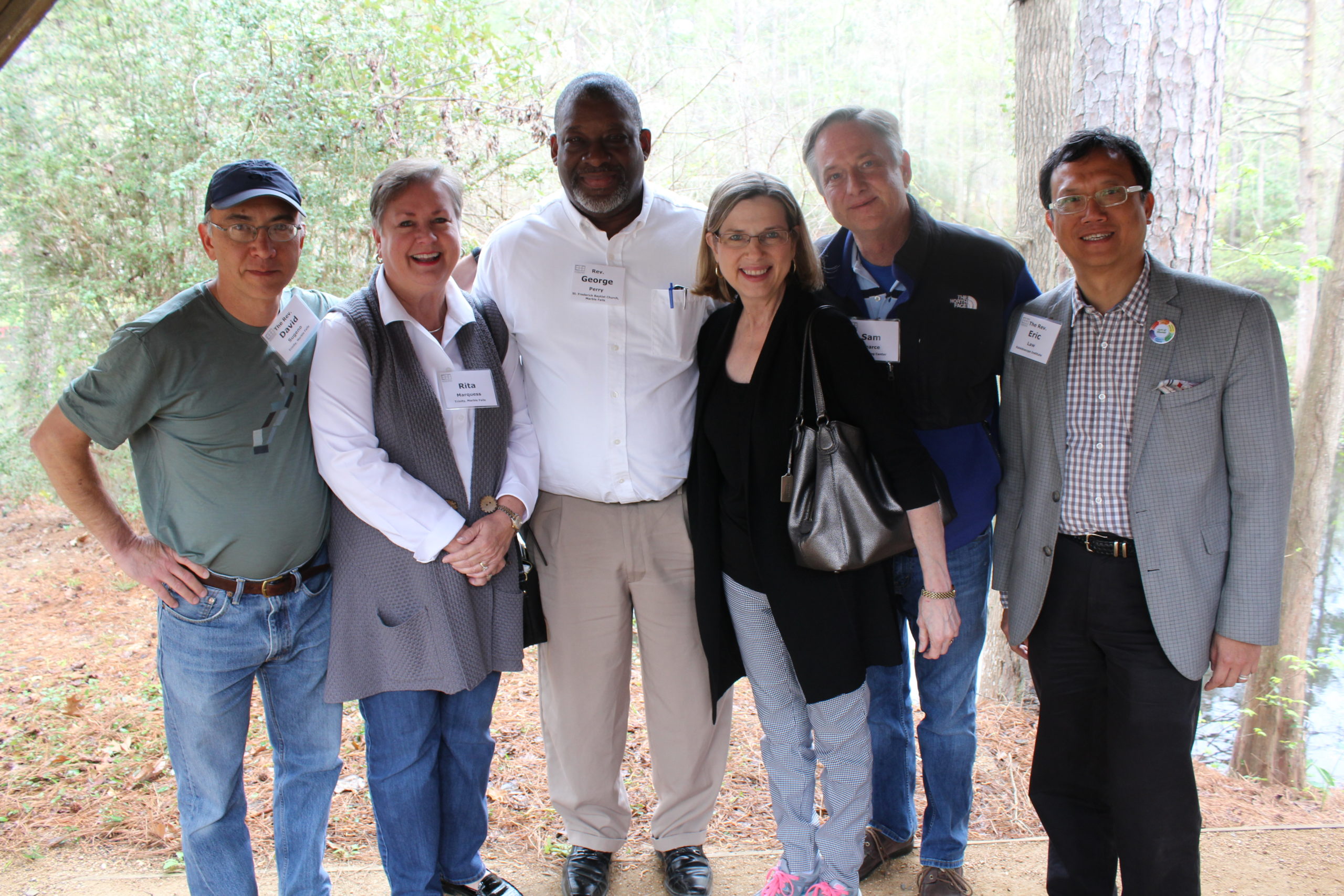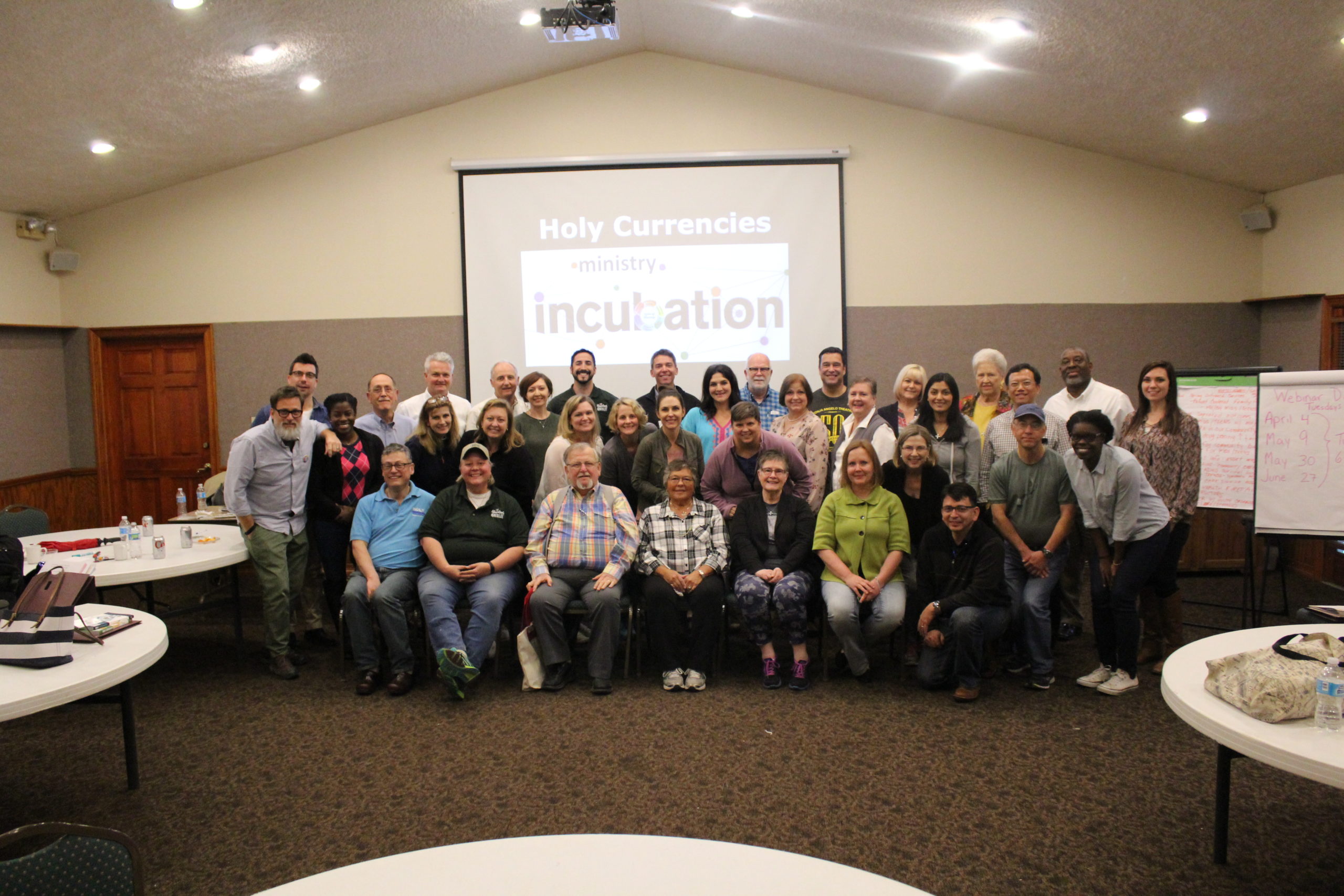
Six Congregations from the Episcopal Diocese of Texas came together this month to dream big about new ministries they are developing in partnership with EHF. Working with the Kaleidoscope Institute (KI)’s Holy Currencies model developed by The Rev. Eric Law, teams of four to six congregational leaders from each church came together with proposals for new initiatives and will use the Holy Currencies model to help further develop and refine their plans over the next six months.
Through Holy Currencies, congregations will examine and build out plans that address the “currencies” of time and place, gracious leadership, relationship, truth, wellness, and money to help ensure their initiatives are sustainable and have a meaningful impact in their communities. The incubation period will last six months. The process begins with a two-day orientation workshop and includes regular meetings and webinars. The effort will culminate with the teams presenting their “business plans.”
The process will help these congregations better understand how their outreach initiative can draw from a variety of assets, skills and approaches to strengthen the benefit to the community, while developing the structure to support a sustainable ministry. Community health and development ministries in this cohort include: food security and nutrition, child and youth programs, mental health, and community planning.
The Holy Currencies teams started the orientation with an open mind and thinking about which currencies would improve their outreach.
“I think the currency we’re developing right now, and what the program is helping us most with is Gracious Leadership,” said Steven Gallington of St. John’s, LaPorte. “Like so many other small churches, there’s a very small subset of people that seem to do everything. Through this work, now we are raising up leaders; some of the leaders are within the church, but most of those leaders are the people we’re actually serving.”
Other teams pondered what their strongest currencies were, which sparked their ideas for their work.
“The relationship currency kicked us off,” said Rita Marquess of Trinity-Marble Falls. “The passion and idea for creating a hunger-free Burnet County came from an individual who then got other individuals interested in our ministry and outreach. We began going out into the community and talking to and partnering with the different groups and organizations providing services to feed people now.”
 EHF’s Holy Currencies Spring 2017 Cohort
EHF’s Holy Currencies Spring 2017 Cohort
Holy Comforter Episcopal Church, Spring: In response to the community’s need for mental and behavioral health resources, Holy Comforter has partnered with community and social service organizations. The Holy Currencies incubation program will support the congregation in developing an approach to improve outcomes for youth with mental health needs.
San Pedro/St. Peter’s Episcopal Church, Pasadena: Since Fr. Pedro Lopez joined San Pedro/St. Peter’s in Pasadena, the congregation has built relationships within the community through organizations such as The Metropolitan Organization (TMO) and Mi Familia Vota. The Holy Currencies process will help the congregation focus on supporting children’s needs.
St. Andrew’s Episcopal Church, Pearland: For more than a decade St. Andrew’s has been intentional about its community-focused ministry. Their Mosaic In Action organization will use the Holy Currencies model to refine their work serving unmet needs in the community by partnering with other outreach organizations and providing hands-on volunteer efforts.
St. Isidore Episcopal Mission, The Woodlands: As a new missional church, St. Isidore hopes to use Holy Currencies to develop its poverty and food insecurity work in the community.
St. John’s Episcopal Church, LaPorte: The congregation has decided to take a “Jubilee,” or sabbatical this year from its long-standing after-school program for church and community youth. The incubation process will help St. John’s redevelop their after-school program and plan Holy Healthy families, a series of initiatives informed by community needs to supplement their reformed program.
Trinity Episcopal Church, Marble Falls: Over the past year, the congregation has worked to organize the Burnet County Hunger Alliance. Through this process, the congregation hopes to continue its work to fight hunger by meeting the needs of the populations they serve and exploring strategies for better food coordination and distribution.
EHF, along with technical assistance from the Kaleidoscope Institute, will support these six congregations to learn and apply the Holy Currencies model. Combined with EHF’s orientation to building healthy communities, the effort will help the congregations incubate their specific outreach ministries. Participating congregations may be selected to receive up to three years of financial and coaching support.